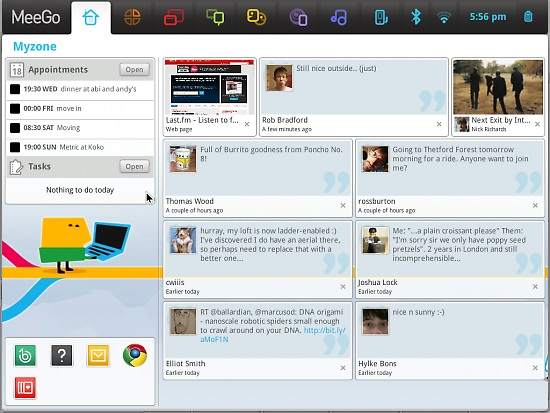Nokia is adopting the Linux-powered MeeGo platform for its N-series smartphone lineup in an effort to more effectively compete against Google Android and Apple iOS 4.
“Going forward, [our flagship] N-series devices will be based on MeeGo [and not Symbian],” Nokia spokesman Doug Dawson told Reuters.

“[Nevertheless], Symbian is enabling us to bring [cheaper] smartphones to more and more people and ensures the benefits of scale for our [devices] and developers.”
CCS Insight analyst Ben Wood explained that Nokia’s decision to abandon Symbian for its higher-end smartphone line illustrated the need for the mobile manufacturer to finally “take decisive action” and “assume full control” of the wayward operating system.
“[Although] potentially controversial, such a move would be an acknowledgement that this part of its open-source approach has failed,” said Dawson.
He added that Nokia was clearly “betting the ranch” by adopting MeeGo to “beat high-end rivals” such as Apple’s iPhone.
Meanwhile, CNET’s Stephen Shankland opined that Android, iOS 4 and MeeGo shared more of a “personal computer lineage” compared to Symbian and its traditional mobile approach.
“[This] arguably befits the new era of mobile devices, which resemble small general-purpose computers more than single-purpose phones. [Owners] use the phone not just for calls and text messaging, but also for e-mail, Web browsing, games [and a wide variety of apps],” wrote Shankland.
“MeeGo falls into this general-purpose category as well, [as it is] an operating system born earlier in 2010 of the combination of two other Linux efforts, Nokia’s Maemo effort and Intel’s Moblin.”

Indeed, as TG Daily previously reported, Linux-enabled smartphones – led by Google’s Android OS – are expected to comprise 33% of the worldwide handheld market by 2015.
“With more than 60,000 smartphones shipping per day, Android has catapulted ahead of other Linux mobile platforms,” ABI senior analyst Victoria Fodale told TG Daily in an e-mailed statement.
“Due to its low cost and ability to be easily modified, Linux in the mobile market today is nearly as disruptive as Linux was in server markets a decade ago.”
According to Fodale, much of the interest that handset OEMs and mobile operators have in Android can be traced to its inherent flexibility.
“The Android platform can be modified so that OEMs can differentiate their products. And the licensing terms allow OEMs to innovate while still protecting proprietary work.”
However, Fodale emphasized that Android was “not without” competition in the crowded mobile marketplace.
“Industry heavyweights Intel, Nokia, and Samsung recently announced two other new Linux-based operating systems, bada and MeeGo.
“The bada platform is also kernel-configurable so that it can run either on the Linux kernel or a real-time operating system (RTOS) kernel – which makes bada applicable to a wider range of devices than just smartphones.”






